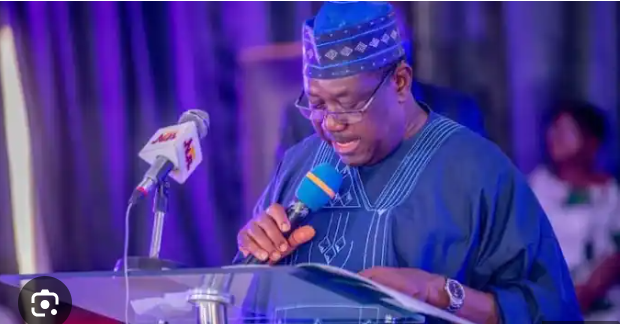The Federal Government has urged the newly reconstituted Board of the Nigeria Extractive Industries Transparency Initiative (NEITI) to enhance the agency’s efforts in mobilizing domestic resources and addressing the challenges of energy transition using information and data.
During the opening session of the NEITI Board retreat in Lagos on Monday, Secretary to the Government of the Federation (SGF) and Chair of the NEITI Board, George Akume, made this call. He was represented by Mathew Adoli, Nigeria’s immediate past Ambassador to Togo and a member of the NEITI Board.
The SGF emphasized the government’s commitment to the extractive sector through reforms aimed at transparency, beneficial ownership disclosures, contract transparency, revenue generation, combating oil theft, and addressing other process inefficiencies within the industry.
He praised NEITI’s collaborative efforts with other agencies and urged the new Board members to view their appointments as opportunities to contribute to the country’s progress and the development of Nigeria’s extractive sector.
Akume stated, “Through Nigeria’s strengthened membership in the EITI, the President has shown a commitment to good governance, openness, and transparency in managing the revenues from Nigeria’s oil, gas, and solid minerals sectors. This involves enhancing public participation, inclusivity, accountability, and providing NEITI with unrestricted support to fulfill its functions.
“I reaffirm the Nigerian government’s unwavering commitment to implementing the EITI under the NEITI Act 2007 and the global EITI Standard. This commitment has led to the prompt execution of report findings and recommendations, driving reforms and transformation in Nigeria’s oil, gas, and mining sectors, as well as the overall conduct of government business.”
NEITI’s Executive Secretary, Orji Ogbonnaya Orji, noted that the retreat was an opportunity for the new Board to reflect on NEITI’s role in shaping the future of the extractive industry.
“This requires robust discussions to generate ideas to tackle current challenges such as oil theft, illegal mining, the theft of Nigeria’s precious minerals, pipeline vandalism, environmental damage, and other governance issues that have led to revenue losses and missed investment opportunities in the sector,” he said.


